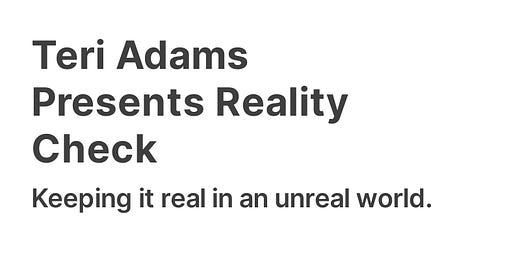This post is inspired by a post I read today from
What Ifs
I don’t recall a lot of thinking about “why me” as a kid. I was born with this disability. See
Since I never ever lived without fucked up skin, I had nothing to compare it to. You may or may not be surprised by how many adults I explained this to as a kid. Since no one knew why I was born with it, the “why me” question seemed silly without more information.
My family was not religious, but I ran into neighbors and strangers who would say, “God never gives us more than we can handle.” Or words to that effect. When I was really young, I would think, “Why would he do that?” When I was older, I would think, “Whatever.” I was always very polite to these people, but I also tried to thread the needle and not indicate that I was also a believer. That seemed dishonest to me.
Oh, Now I Get It
What I realized more and more the older I got is that a lot of things that I went through because of my skin weren’t inherently because of the skin but because of what the adults did in response to it. Whether it was the nightly baths that promoted bacteria, odor, and blistering or sending me to special ed because no one in the local school wanted to deal with it (I didn’t need any accommodations in “regular” school, by the way, except an exemption from PE).
The only times I threw tantrums at special ed was when they tried to make me do something I knew would physically hurt me. It isn’t irrational, lazy, or uncooperative to not want to ride a regular bike if you know that tipping over—just one time—could easily result in taking a large swath of skin off my arm or leg or both. The adults just didn’t think through the equation—that infuriated me. You’re the adult, yeah?
But, Back to Amy
To oversimplify Amy’s thoughts, she has come to appreciate what she has been “forced” to learn as a result of becoming disabled. Although this is not the life she envisioned before she became sick, she can find the richness and meaning in the life she has now.
For me, I was advantaged in never knowing any other way to be. I always had to take the disability into account in whatever scenario I was planning. What I didn’t anticipate was the discrimination—educational, employment, social—I would experience at every age, sometimes when I least expected it. As the technology and the civil rights laws improved many prospects, the people I encountered were not keeping up.
As early as my twenties, I began thinking that if I hadn’t been born with this disability, I probably would have been a real asshole. In thinking this, I factored in what my mother was like and how much harder she would have pushed me to live out her ambitions. As it was, she didn’t push me that much but rather just refused to believe that I experienced discrimination because I was “smart.” Like intelligence trumps bigotry. How’s that working out for you, people of color?
But, I was bright, white, and solidly middle class. Many more doors would have opened for me, and I would have never had any reason to develop the nuanced understanding of other people and “otherness” I started learning from a very early age.
Don’t Get Me Wrong
I am NOT one of those people who says, “I am so grateful for all of my disability-related misfortunes! It has made me a better person.” [Much brave sniffing and fluttering of eyelashes.]
There are strictly physical aspects of this (and many other disabilities) that just fucking suck. Inadequate physical pain management, emotional pain, and disappointment from people (acquaintances, family, friends, bosses) doing the wrong thing (vis a vis disability)—not a good trade-off for early acquired wisdom.
But you get what you get.
I pity the next twenty years’ worth of doctors; little old fat lady be saying, “fuck no!”






Thank you so much for sharing your story. Although not disabled myself, it has helped me look through the different hardships I've gone through over the years.
"I was advantaged in never knowing any other way to be."
I love this quote and completely agree. Reminds me of the quote "It's better to not have, then have, and then get it taken away" (or something to that extent). Sometimes I fall down the rabbit hole of having and not having, but pull myself out before I begin to despair on the subject. This thought process had helped me with that. Thank you.
Teri, I’m so honored to have inspired this excellent post. You have a way of telling a story so tightly and concisely that I find very challenging for myself. Brevity is not my strong suit, lol.
There’s much to digest here - the perspective of never having known a different life, the misguided behaviors of those who influenced you early on, the wondering that “would these adults have done better by you if you were being raised in today’s world?” (maybe in some ways and most likely not in others).
I love your deep candor when said you probably would have been an asshole if you did not have your disability. That you didn’t become one is definitely something to be thankful for 😁